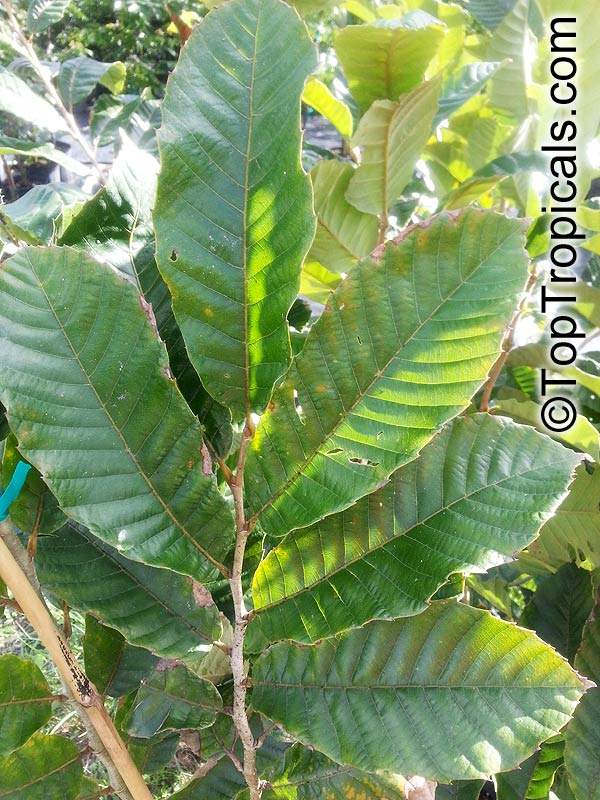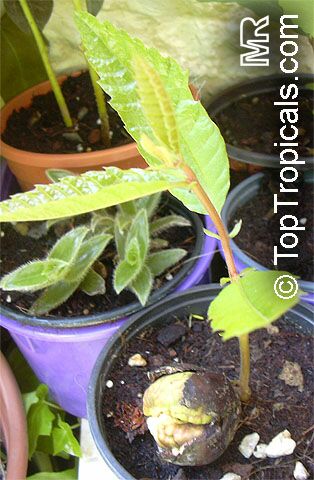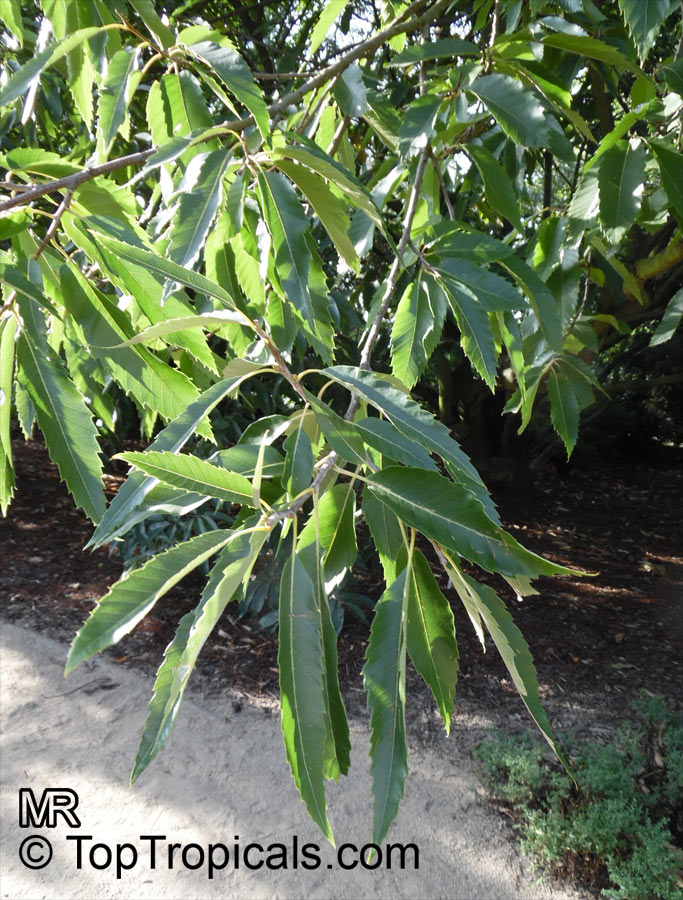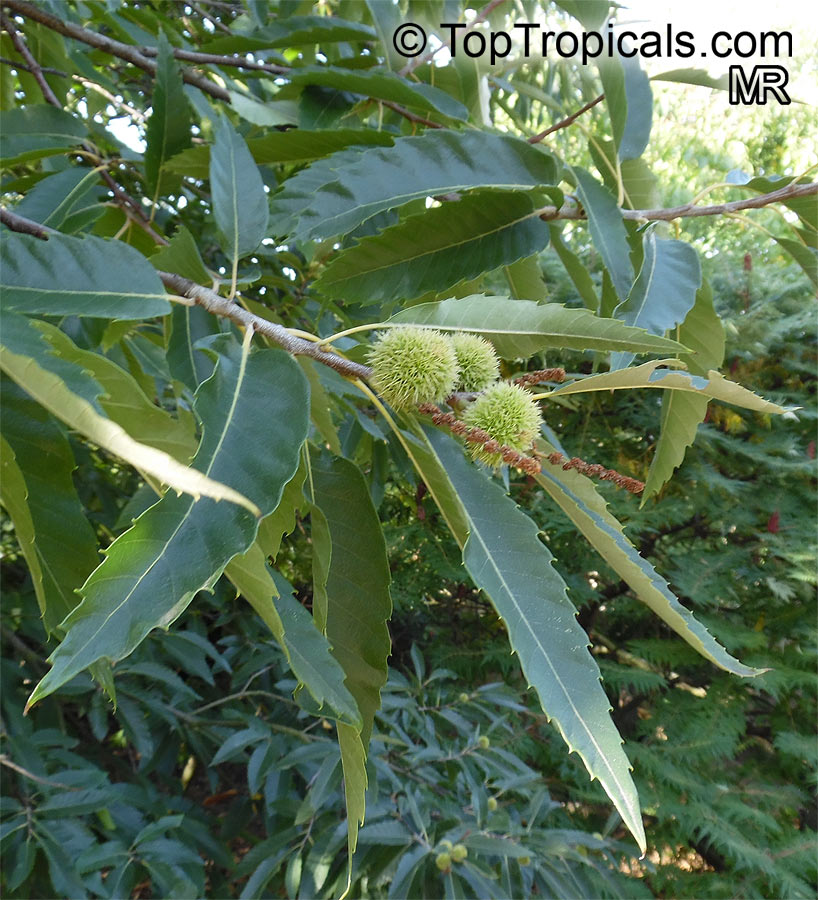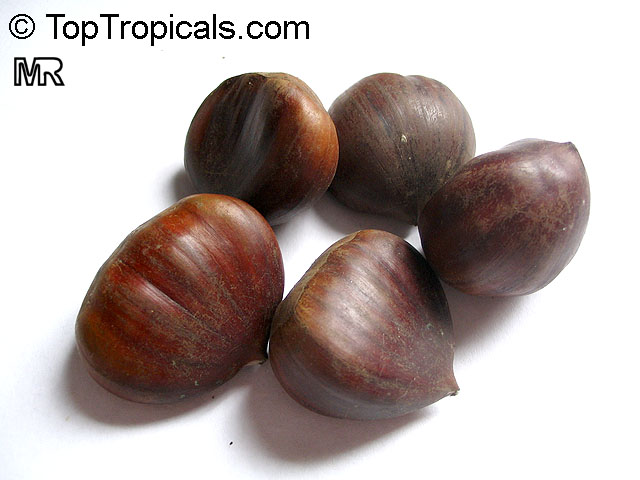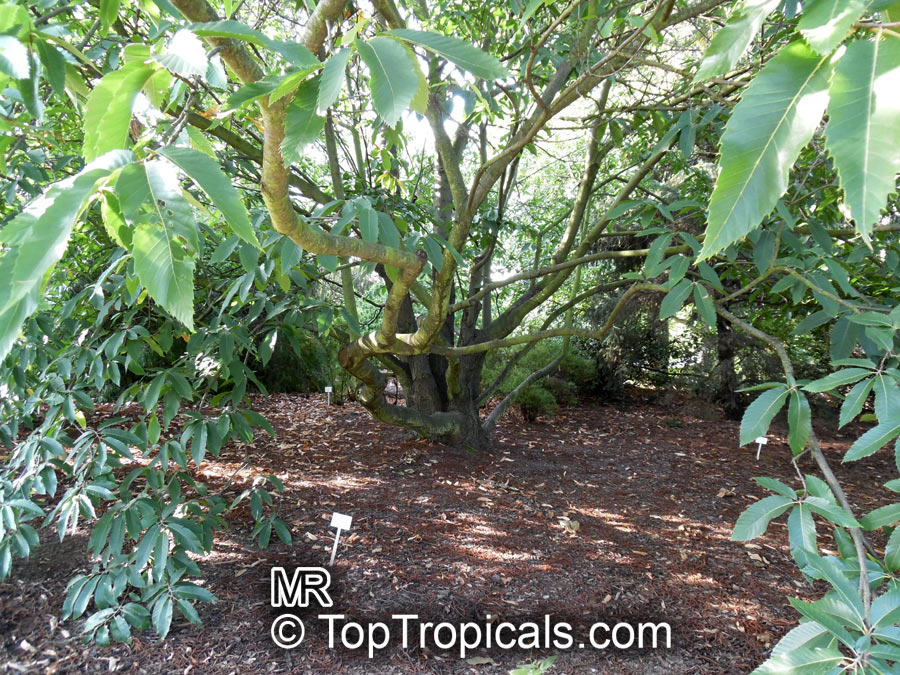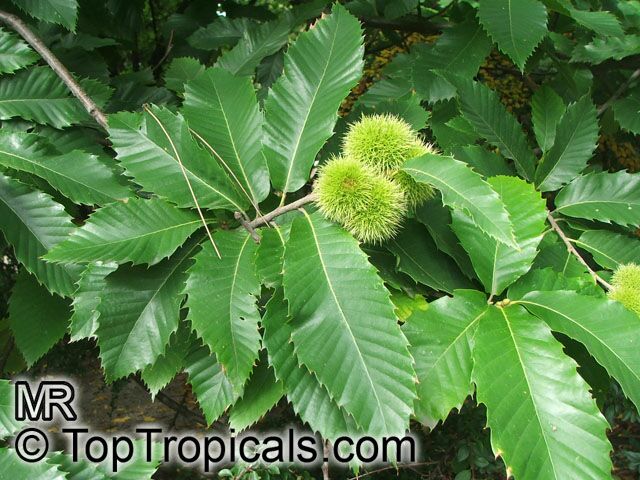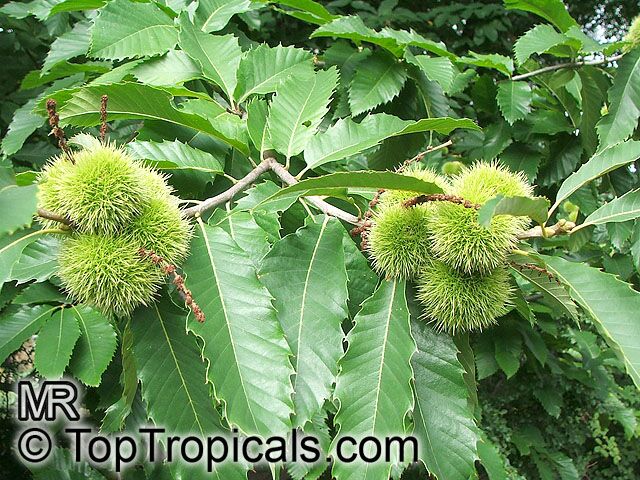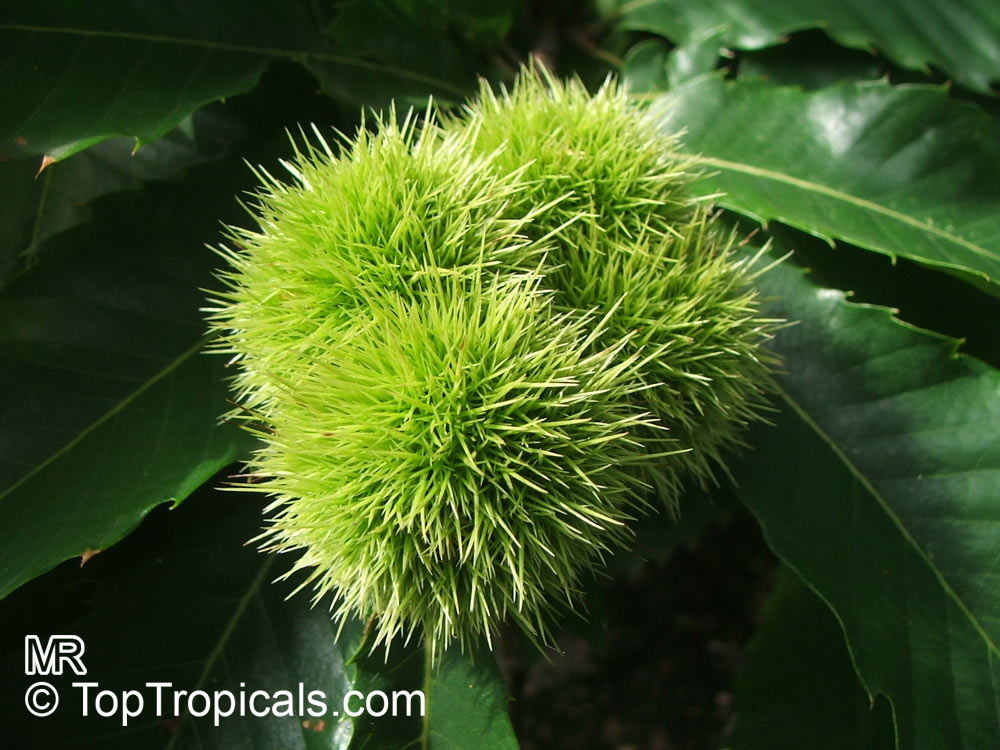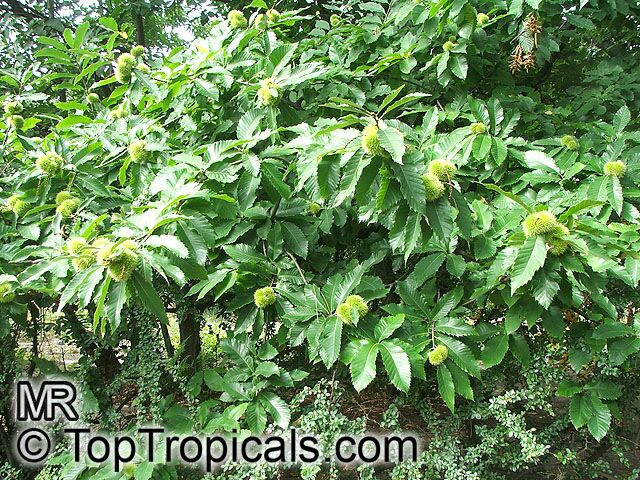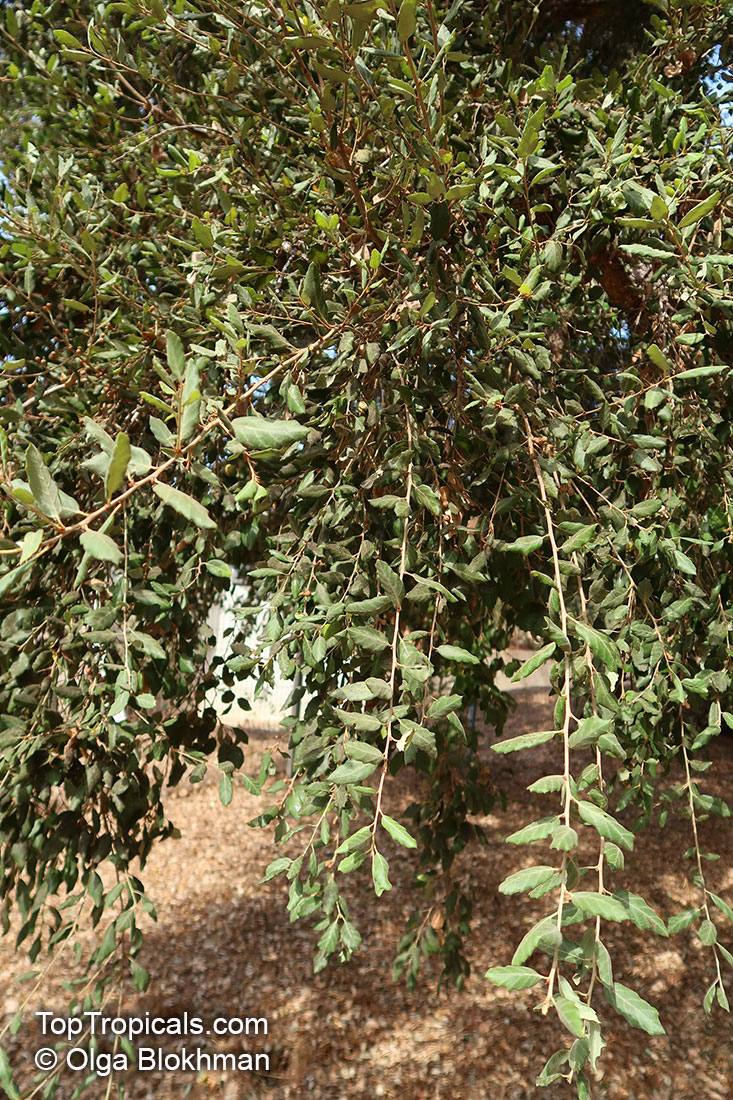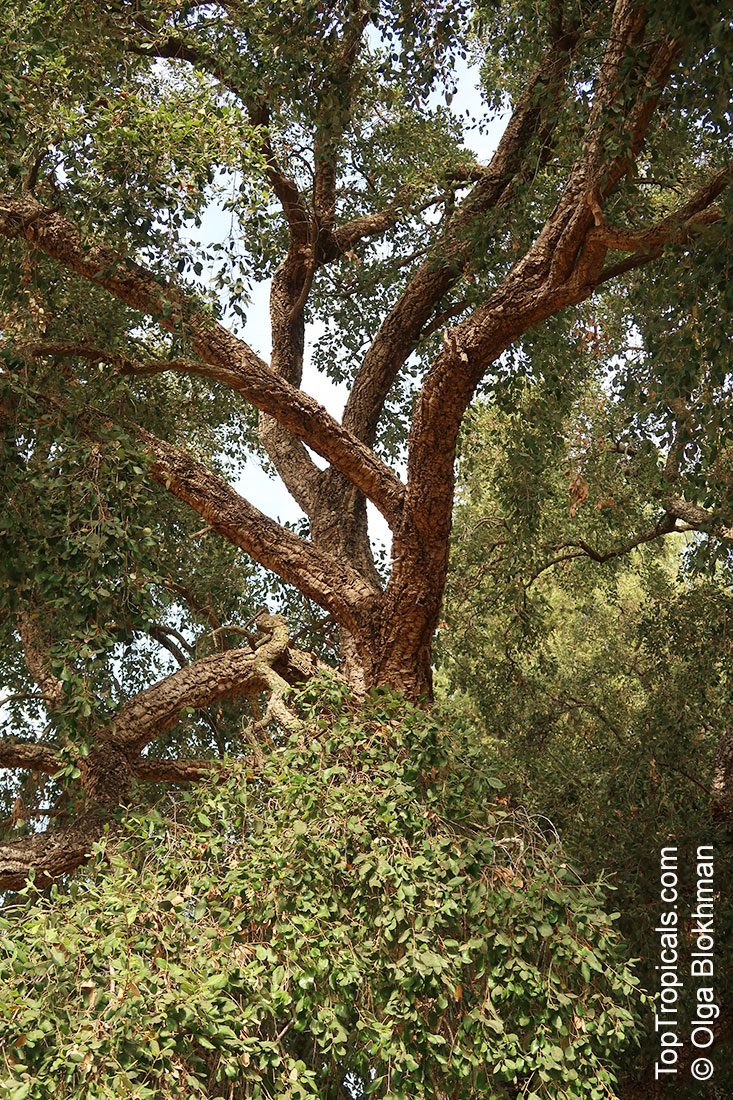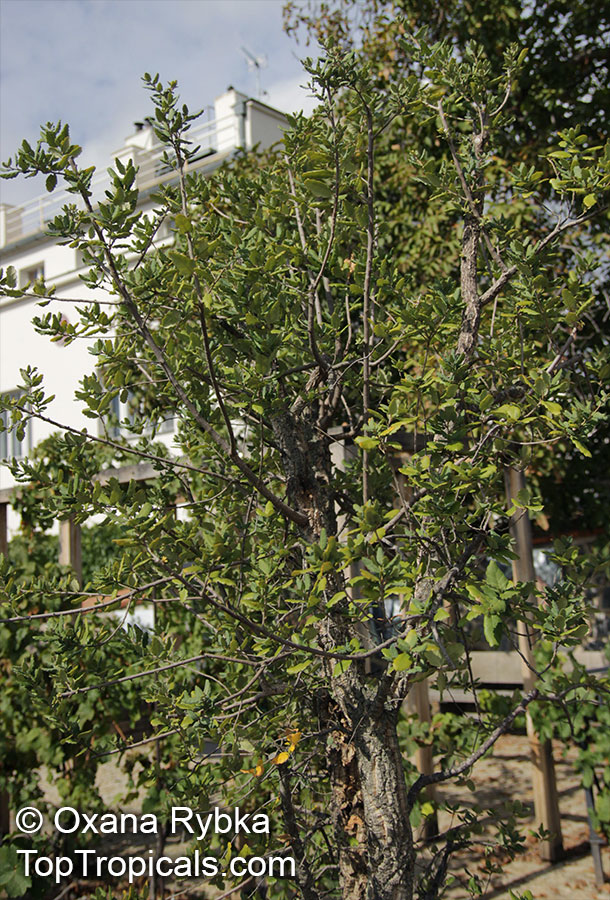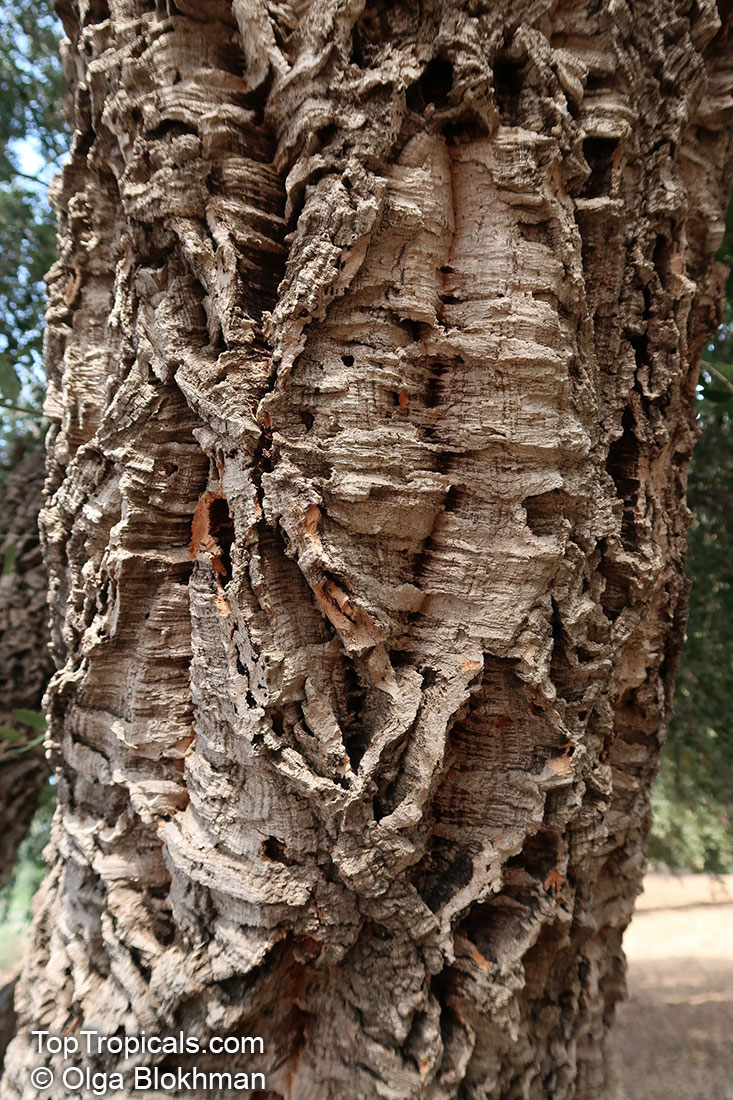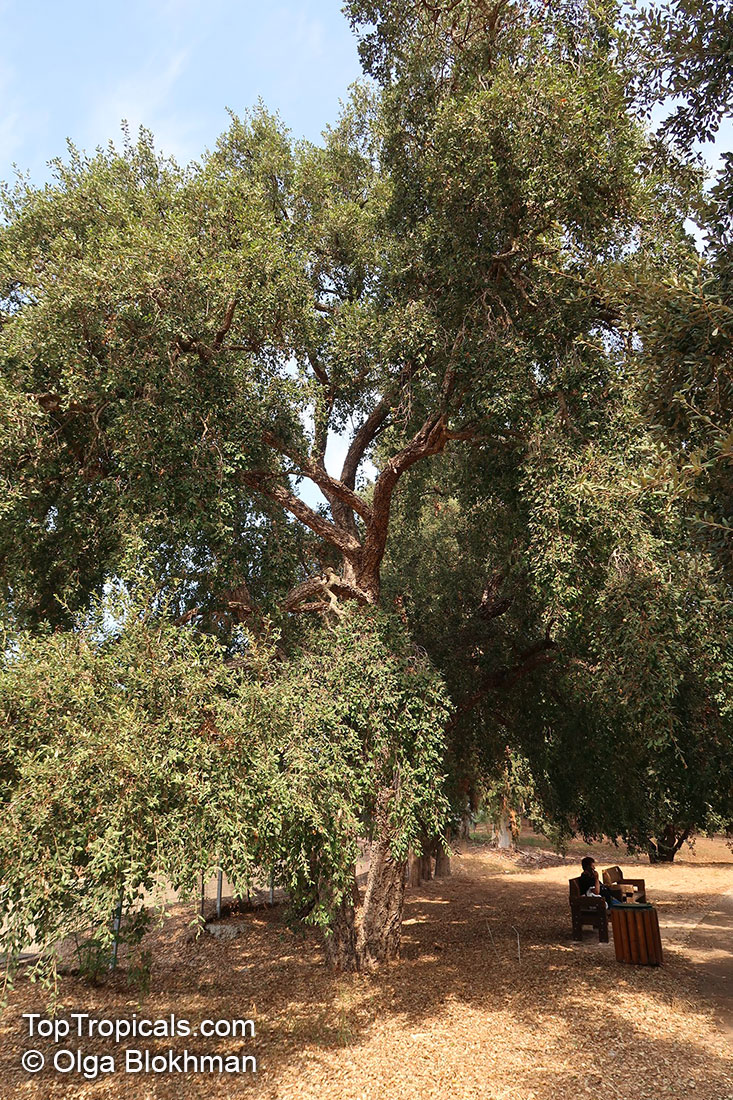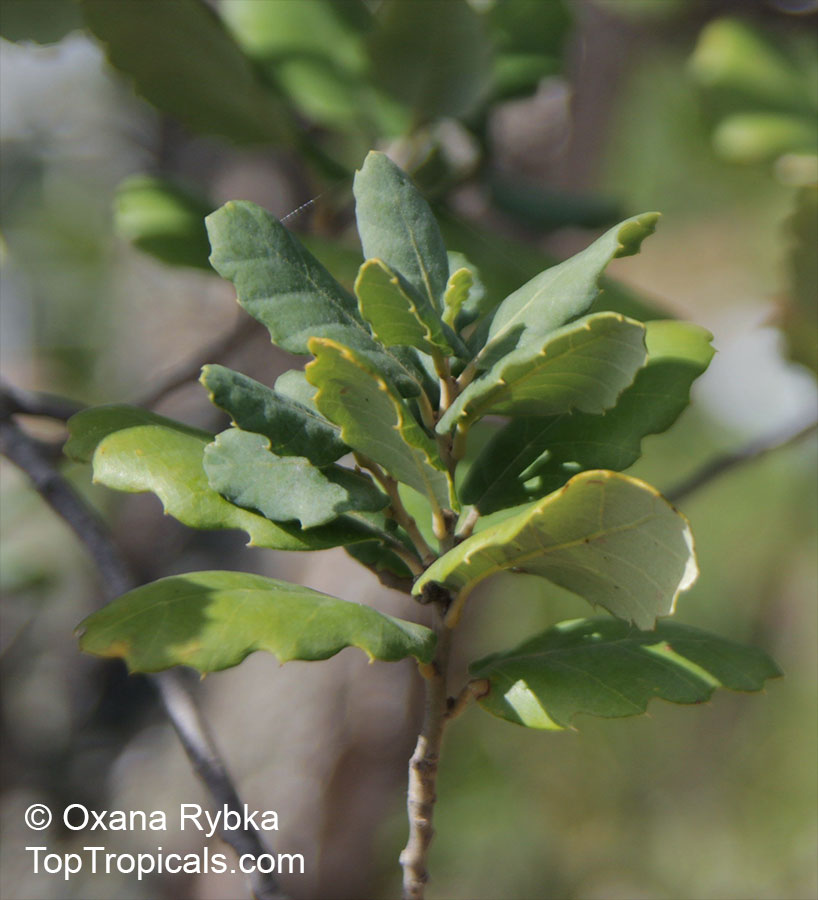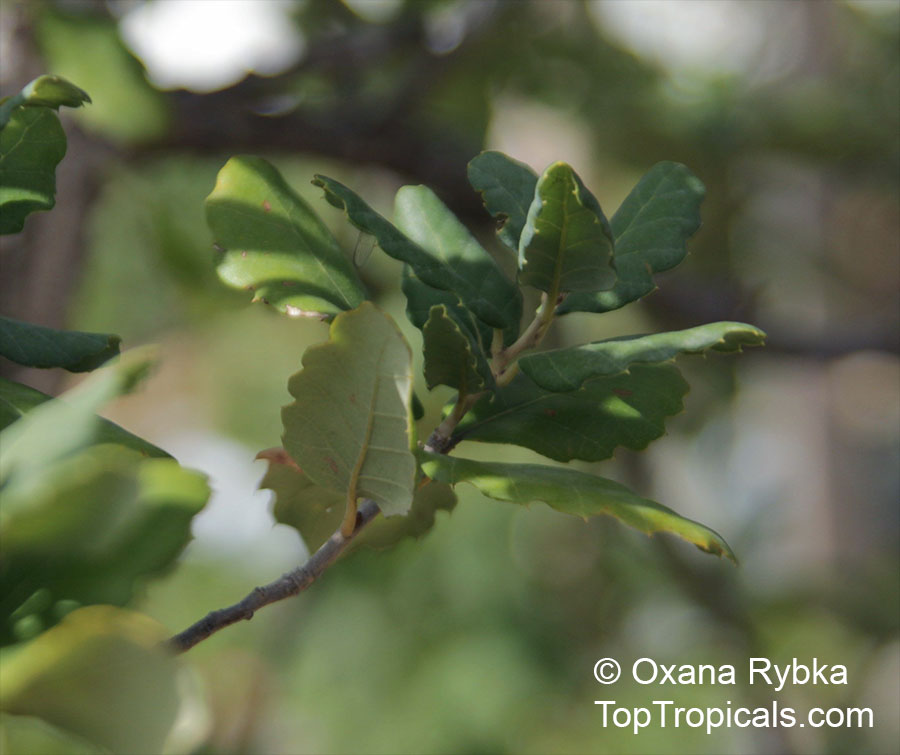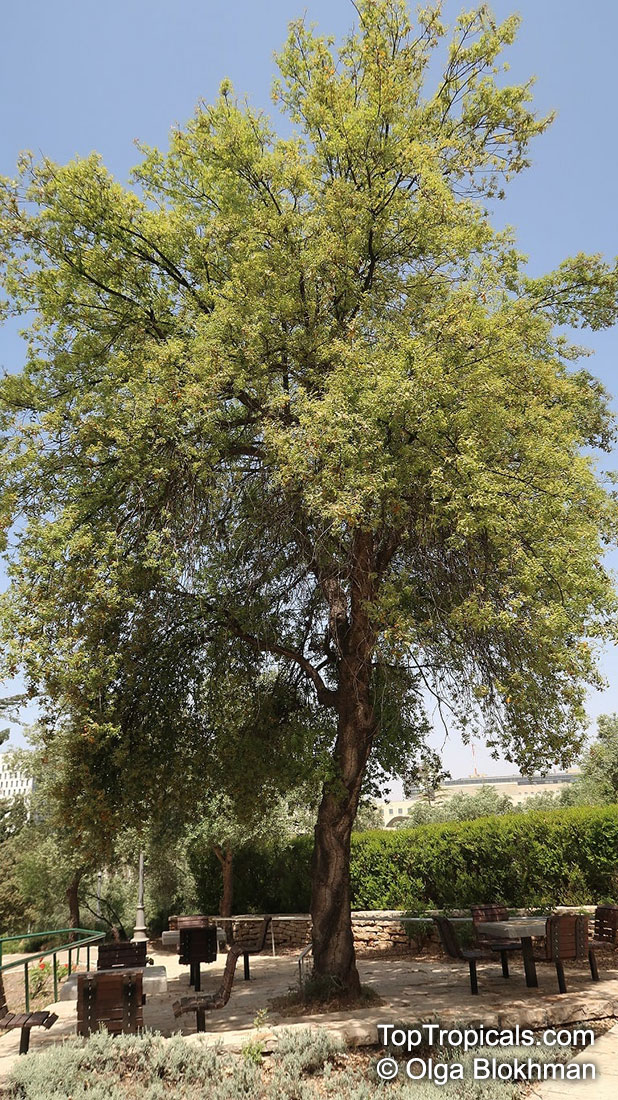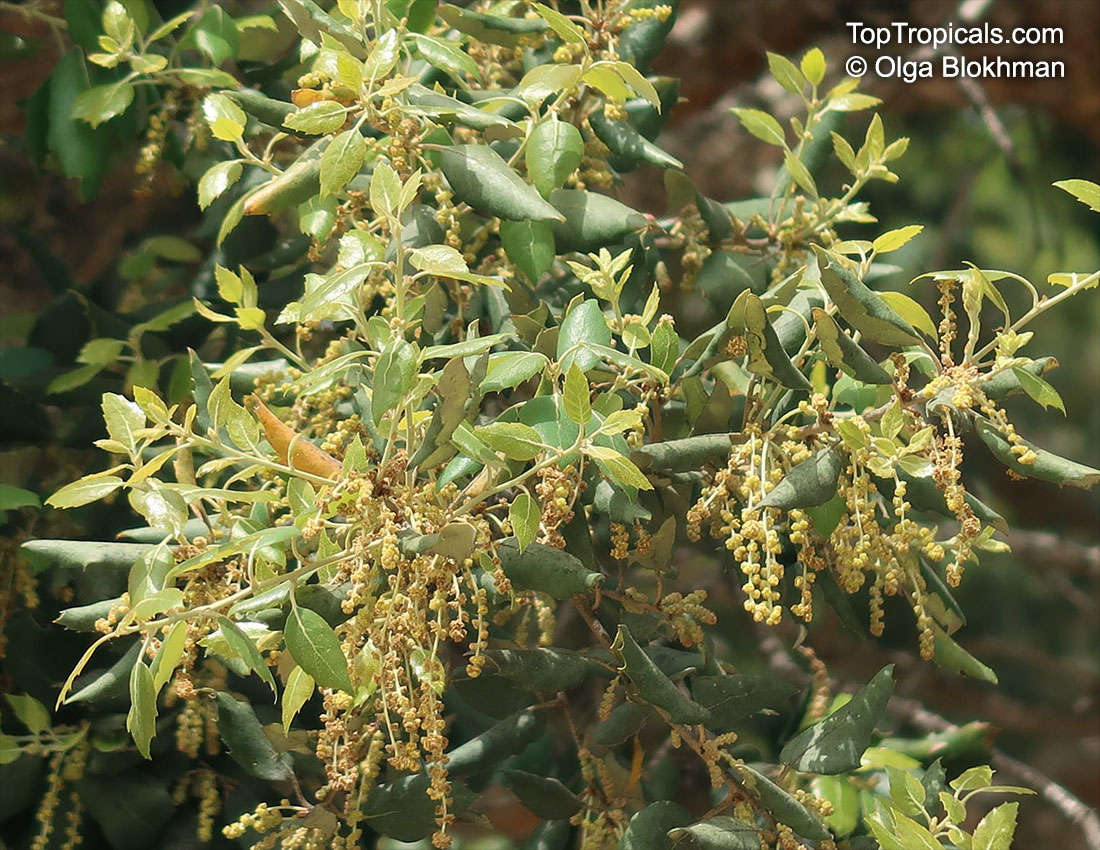Fagaceae - Botanical Family
| Number of plants found: 2 |
Botanical name: Castanea sativa
Common names: Spanish Chestnut, European Chestnut, Sweet Chestnut
Family: Fagaceae
Origin: Western Asia






Castanea sativa, or Spanish Chestnut, is a big tree that can grow taller than 20 feet. It is native to Western Asia and is grown in USDA Zone 5-9. Spanish Chestnut requires full sun or semi-shade and needs regular watering, with moderate watering when young. With the correct amount of water, it is drought tolerant.
The edible fruit of the Spanish Chestnut is an oval nut that is encased in a spiny, green husk. An average tree can produce up to 1,500 nuts per season, each containing high amounts of Vitamin C, B vitamins, and protein, as well as magnesium, copper, copper, and zinc. The sweet and nutty flavor of the chestnut makes it an excellent addition to many dishes. It can be boiled, roasted, ground into flour, or used in desserts and soups.
When growing the Spanish Chestnut in a pot, it should be placed in a sunny spot in cold regions. The pot should be large enough for the tree to receive enough nutrients and water. The soil should be kept slightly moist, but not soggy. Pruning should be done every three years to remove any dead or diseased branches. The chestnut needs to be fertilized regularly with a balanced fertilizer. With proper care, the tree can produce large amounts of fruit for many years.
Botanical name: Quercus suber
Common name: Cork Oak
Family: Fagaceae
Origin: Mediterranean






Quercus suber (Cork oak) is a small tree that grows between 10 to 20 feet in height and is native to the Mediterranean. It is a hardy plant that is suitable for growing in USDA Zones 7-11. The leaves of the Cork Oak are typically 2-3 inch long and with coarse tooth-like edging. The acorns of this tree are up to 1 inch long, set in a deep cup that's surrounded by long, thin scales. These tree are an essential source for the production of cork, which is widely used for making wine bottle stoppers and other products.
Caring for Quercus suber is relatively easy. The Cork Oak likes to receive full sun in moderate temperatures, although it can also survive in semi-shade conditions. As far as water requirements, this plant needs regular watering in order to ensure its healthy growth. Watering should be adjusted depending on the climate - for dryer, warmer areas, more frequent watering will be necessary.
Cinnamon Oak is native to the Atlantic and Gulf coastal plains of the United States, from Virginia around Florida to Texas and inland to Oklahoma and Arkansas
Recommended Fertilizer: SUNSHINE Robusta - Rapid Growth Booster
7 gal pot. More developed root system, thicker trunk and branches. Plant height depends on growing season and variety. Dwarf varieties are slow growers and may be shorter. Contact us for exact size description if size/height matters to you. 7 gal plants may be shipped separately from other items by Ground service due to large size. See here time in transit (business days, excluding Sat-Sun!)
Use link to repeat this search:
https://toptropicals.com/cgi-bin/garden_catalog/cat.cgi?search_op=and&keyword_op=and&language=e&family=Fagaceae&number=10
&no_change_lang=1&user=tt&sale=1&first=0
